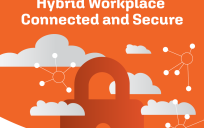Common Sense in Security
It might seem like common sense not to divulge specifics about the security technology safeguarding a municipality, yet in an era where the lines between media reporting and political strategy have increasingly blurred and newspapers vie for relevance through sensationalism, common sense becomes less common. Amidst the escalating frequency of cyberattacks and the rapid advancement of AI, the stakes for protecting sensitive information have never been higher. Disclosing security details through the media not only feeds the narrative but also arms potential attackers with the very information they need to exploit vulnerabilities.

The Ethical Imperative
Navigating the delicate balance between ensuring security and upholding transparency in government is crucial for fostering public confidence and safeguarding the principals of democracy. The duty to protect sensitive data, however, is a shared ethical obligation, vital for the security and stability of our communities. When security information is disclosed carelessly or for political advantage and sensationalism, it can weaken public trust and pose safety risks to our governments, residents and employees.
Unethical Behavior in the Spotlight
Amidst this challenging backdrop, instances of unethical behavior concerning the disclosure of security-related information have come under the spotlight. Whether driven by a desire for political advantage, media ratings, or personal vendettas, the cavalier treatment of security data not only contravenes the principles of responsible journalism and public service but also erodes the foundational trust between the public and those tasked with their protection.
Bridging the Knowledge Gap
The unfortunate reality is that the intricacies of security protocols and the ramifications of their exposure are not intuitively grasped by all. This lack of understanding does not excuse unethical behavior, but it does highlight a critical need for comprehensive education and awareness initiatives targeted at those within the realms of journalism and politics.
Navigating the Path Forward
Moving forward requires a united approach to tackle the challenges presented by today’s media and political environment, with a strong dedication to ethics. By creating a culture that values the careful management of sensitive security data, we aim to reduce the dangers linked to revealing such information, thereby strengthening the public’s confidence in our institutions.
Conclusion
The recent trend toward increased divisiveness in public discourse has underscored the urgent need for heightened ethical vigilance, particularly in the context of security data handling by journalists and politicians. As we strive to adapt to these challenges, the overarching goal remains clear: to safeguard the integrity of our security frameworks and ensure that the pursuit of information does not compromise our collective safety and ethical standards.
Scott Mastellon, former Suffolk County (NY) CIO and current Managing Director of Public Sector at SVAM International Inc., is a distinguished technology leader with over two decades in the experience in government. Renowned for driving digital transformation and operational efficiency in the public sector, his strategic leadership was crucial during Suffolk County’s critical moments, notably amidst the COVID-19 crisis. Leveraging his rich experience as a government CIO, Scott now brings innovative technology solutions to public sector organizations at SVAM, focusing on cybersecurity, RPA and AI, and data modernization.





Leave a Reply
You must be logged in to post a comment.